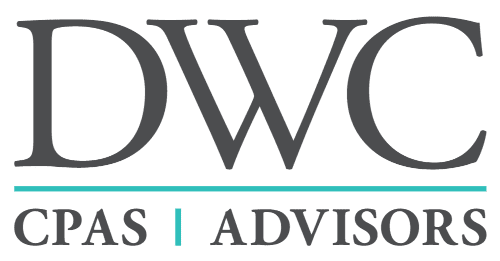I have been an accountant for over 25 years. It seems like yesterday when I started my job as a freshly minted staff accountant, ready to take on the world’s finances! My days would be busy ensuring my clients complied with the IRS and other various regulators.
The years flashed by and each new year brought perspective to what the accounting industry really does and what my clients actually needed – full 360-degree business support for continuous change. I would advise my individual and business clients to make the right decisions for opportunity, risk, growth, retirement, be a sounding board, brainstorm, and help them plan their future and legacy.
In my now CEO role, my job is to manage and plan for our firm’s growth and continuous change to our industry demands and client needs. KPMG’s 2019 CEO Outlook reports that over two-thirds of CEOs believe that agility is the new currency of business, “If they [CEOs] fail to adapt to a constantly changing world, their business will become irrelevant. This is a stark choice. To be resilient, organizations need to be comfortable disrupting their business models if they want to continue to grow.” I agree. And, through the disruption, your accountant advisor is in the middle as a connector to you and change. Being in the middle of so much transition means our industry is evolving quickly too. There are three main disruptions, or what I think of as opportunities, in accounting that companies and owners should expect.
Deeper Integration in Your Business. Business functions are becoming more interconnected because of technology. This can create a more synergistic organization, but it can also be overwhelming. Clients will look to their accountant advisors to take a seat at the board or management table for real-time insight and decisions, planning, and strategy. A broader advisory role incorporates a higher-level view to ensure the overall strategy and vision is on track. This requires data analysts, process automation specialists, information security analysts, risk management specialists, and strategic advisors, all of which are jobs increasing in demand.* The future of accounting will include more than CPAs. Many firms are already hiring data analytics, technology, and human resources experts to help clients with cohesive and seamless advisory services. Gone are the days of CPAs being solely utilized as the trusted historian looking backward at financial data to tell clients what happened last year. The CPA of the future (actually of today) is the trusted advisor continually looking forward and asking the question, “how can we help the client improve and grow and be better prepared to solve the problems of tomorrow?”
More Valuable Technology. Technology is driving much of the innovation and opportunity growth for most industries. Accounting firms now see clients in specific sectors experimenting or already using transformative technologies such as artificial intelligence, data analytics, blockchain, and bots. Accounting and advisory firms, especially those with audit and technology service lines, must know how to audit and advise clients, including cybersecurity.
The Cloud allows businesses to access multiple tools to customize tech stacks for their industry and company without maintaining servers and hardware. As more providers move their software to cloud technology, including accounting and finance software, businesses are compelled to move too. While overall costs may go down, there are risks, including security, and annoyances, like managing a multitude of subscriptions. Cloud everywhere is coming, and accountant advisors will work more with clients virtually to help guide them with technology and real-time data integration.
A Different Workforce. As Boomers continue to retire and Millennials mature into the workforce, their demands of speed and convenience are reshaping our world. Employers will need to accommodate future workforce expectations sooner than later or risk losing great people to their competitors or other industries. There are also skills gaps, so workforces in all industries, including accounting, will need to be reskilled or upskilled from traditional services and delivery to meet the needs of increasing change and future jobs. Critical thinking, problem-solving, self-management, and working with people will be at the top of the list for employer skill wants and expectations.
Eighty-four percent of employers are set [now] to rapidly digitalize working processes, including a significant expansion of remote work – with the potential to move 44% of their workforce to operate remotely.* Two challenges having remote workers include; 1) if the business has out-of-state workers, there may be state and local-specific business and employer regulations you must manage, 2) cybersecurity and risk management concerns. Accounting firm advisors will help clients manage state NEXUS laws, insurance, licenses, and other business/employer regulations. Accounting firms with technology service lines can take the lead in advising or provide audits on cybersecurity and other risk mitigation.
I’m excited by the opportunities and insight accounting advisory professionals can provide now and for the future. The sustainability of business depends on the ability to make strategic decisions and be agile to change. The relationship with your accountant will become less and less focused on once-a-year compliance and historical data, and more focused on becoming an integral part of your business every day.
* World Economic Forum Future of Jobs Report 2020
Christopher L. West, CPA, is the chief executive officer of Dalby, Wendland & Co., P.C. (DWC). He became a tax principal in 2009 and CEO in 2019. Chris’s focus is on firm leadership and vision direction, including operations, people, client service, technology, and overall growth strategies. He is a licensed Colorado Certified Public Accountant, member of the American Institute of CPAs and Colorado Society of CPAs.



